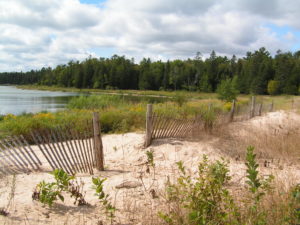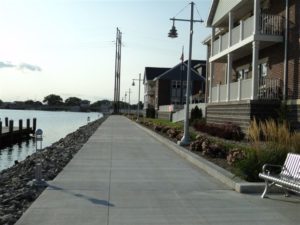The U.S. Forest Service anticipates approximately $3.7 million in new funds will be available for tree planting and restoring native vegetation in the Great Lakes Basin. This funding will be competitively awarded to the best proposals received through the May 11, 2018 deadline at grants.gov. Search for Grant Opportunity Number USDA-FS-2018-GLRI. See the attached announcement and the link below for more information.

Door County, WI
Funds will be distributed across the following three program areas:
- Mitigate Emerald Ash Borer Impacts,
- Reduce Runoff from Degraded Sites through Green Infrastructure, and
- Enhance Coastal Wetland Filtration.
See the 2018 Great Lakes Restoration Initiative RFA website for more information.
Invitation for an informational webinar about this grant opportunity:
Thursday, April 5, 2018, @ 2:00 p.m. Eastern/1:00 p.m. Central–Webinar will be recorded for later viewing.
Sign in to Adobe Connect: https://usfs.adobeconnect.com/na-500/
Phone: Mute your computer speakers and call 888-844-9904 (access code 6611078) OR
Audio through the computer: Make sure your computer speakers are on and listen with speakers or headphones.
Accessibility: Live captions will be provided and keyboard commands provide accessibility in Adobe Connect. If you have any additional special access needs, contact Sherri Wormstead (or 603-244-0799).
Need Help Connecting? You can test your connection ahead of time or troubleshoot connection issues at Adobe Connect support online or call 800-422-3623


